Tuesday, February 1st, 2022
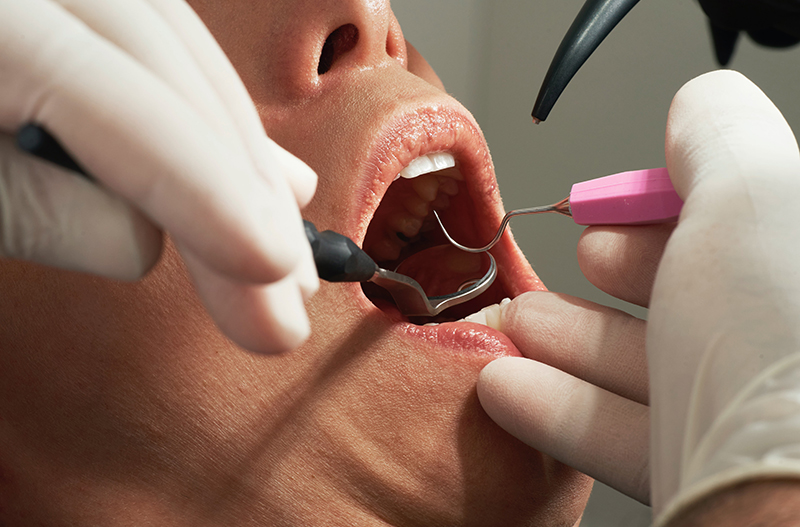
4 Ways to Treat Tooth Decay and Keep Your Tooth
There are ways to treat a decaying tooth that do not require extraction. Many people are so frightened at the thought of visiting the dentist that they will let salvageable teeth reach the point of no return. There are extraction alternatives that you might want to consider if you are worried about decaying teeth.
Filling a decaying tooth is one of the easiest dental fixes. A tooth with relatively minimal decay can be treated by filing off the decayed area and putting a filler material, usually porcelain, to fill the area where the decaying tooth was. This will help to prevent an exposed nerve and allow eating to be as normal as it was pre-decay, pre-filling with a healthy tooth.
A crown, sometimes called a cap, for your tooth is a protective covering that fits over your damaged tooth. If a tooth is too decayed to save cosmetically, or if too much decay needs to be filed down, a crown can be placed over the tooth. While often cosmetic, a crown also offers a safeguard against the pain of cold or hot on an exposed tooth nerve.
A relatively new treatment for children with the potential for decaying baby teeth is to crown the teeth instead of filling the cavities or extracting teeth. Some tooth decay is genetic, and no amount of early dental care will preclude decay in your child's first set of teeth. Crowns are a way to allow your child to keep their baby teeth so their jaw and bite will stay in alignment until their second teeth come in.
Bridges provide an extraction alternative when you have one or more missing teeth. You can save surrounding teeth by affixing a molded dental piece to the side teeth going across the area of a missing tooth or teeth. A bridge is professionally formed to look just like your own teeth, and you will be able to smile and eat as if all of your natural teeth are in place.
Root canals are a way to treat tooth decay by treating the bad tooth without extraction. Your dentist will usually give you a local anesthetic, which will numb your mouth. You will probably feel them working but the procedure should be painless after the pricks of the numbing shots. The total root canal process usually ends with a temporary filling to prevent infection where the dentist drilled your tooth. At a later appointment, a permanent crown will be placed.
For tooth extraction alternatives in Coquitlam, call us today at Brookmere Dental Group to make an appointment to see our gentle, friendly dentist. There are alternatives to pulling your tooth.
Monday, January 3rd, 2022
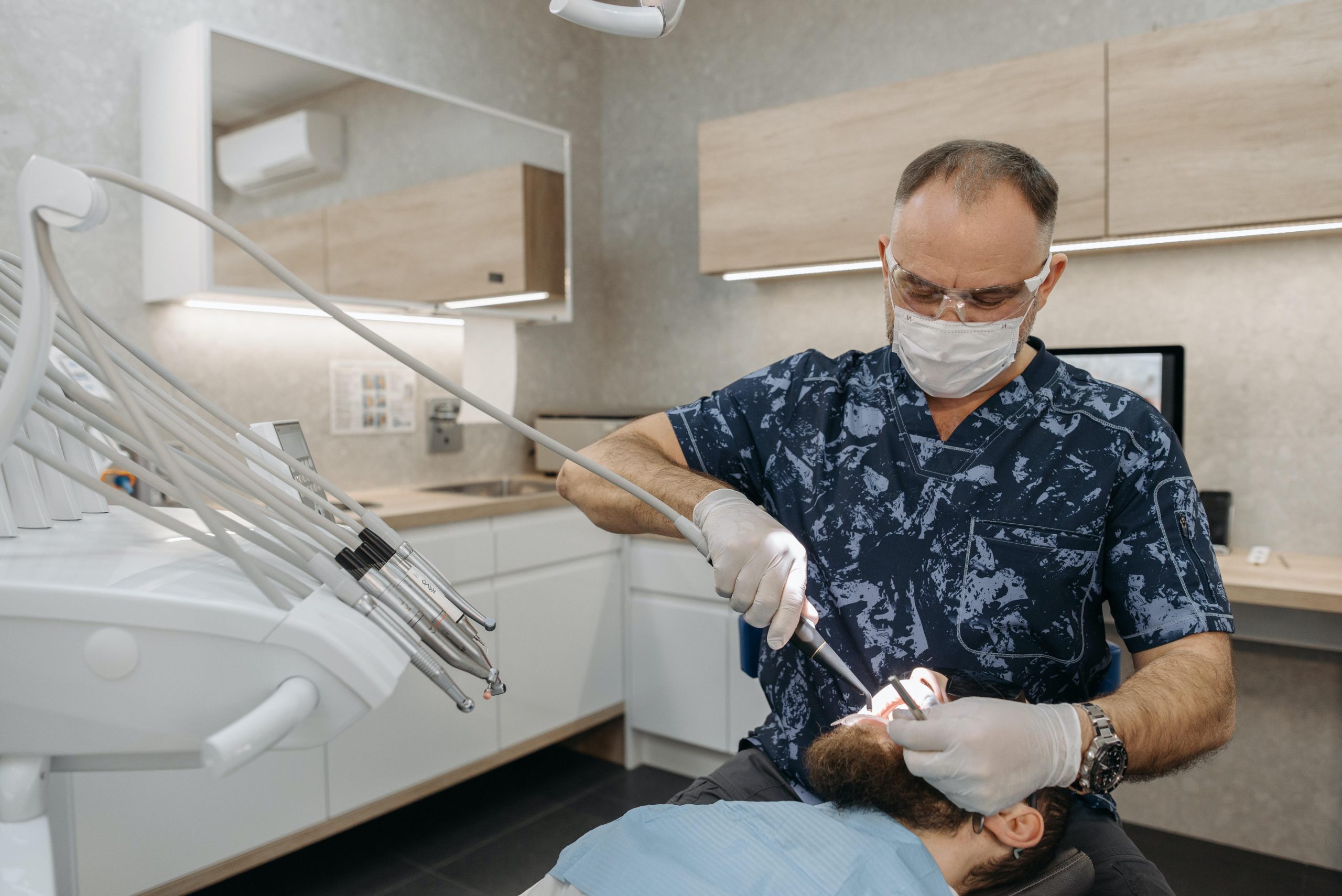
Dental fillings are typically used to replace missing tooth structures. Generally, they are used to treat enamel defects caused by decay, trauma, or previous restorations.
What if there is severe pain following a filling, or if a prolonged soreness persists? How about a temporary soreness that returns? In this article, we'll discuss what to expect after a dental filling, and when you should call your dentist.
Fillings are used to treat cavities in the mouth. To stop decay and strengthen the tooth, a cavity filling is a straightforward procedure. The procedure can be repeated for multiple cavities in one visit. Dentists select the most suitable dental filling material from several different materials available.
To numb the area surrounding the tooth, a local anesthetic (usually Novocaine) is injected. Before the affected area becomes numb, patients usually experience a pin prick-like sensation.
The decayed parts of the tooth are ground away by the dentist once the area has been numbed. The tooth is then cleaned and filled with filling material. To ensure that the filling does not affect the patient's bite, the tooth is polished and filed.
There is usually no need for follow-up visits after the treatment, and the patient can resume normal activities.
After a filling, some discomfort is to be expected, especially in the first few hours. Once the local anesthetic wears off, you may feel tingling and even twitching.
When the pain does not diminish within a few hours, then there may be a problem with the affected tooth. Occasionally, the pain subsides and then returns. This often means the cavities may have been larger than previously thought, or there may be decay around the filling.
Similarly, the area around the filled tooth may also be sensitive to hot and cold liquids for a short time after the procedure. An uncomfortable sharp pain is usually felt in the sensitive area of the filling. It could mean that there is something wrong with the filling if the pain lingers or if the sensitivity persists after a week.
The procedure of placing a filling can occasionally result in complications, even though it is a common one. To reduce the pain caused by fillings, patients can take a variety of steps. Ibuprofen and acetaminophen, both available over the counter, can help relieve pain. Cold compresses can also be helpful.
If the home remedies listed above do not alleviate severe pain after a dental filling, individuals should consult their dentist. A dentist may have to redo the filling or find other treatment options to relieve the pain.
Finding a trusted dental office is crucial to exceptional oral health. Brookmere Dental Group has over 20 years of experience. Contact us today to make an appointment with our Vancouver area lead dentist.
Wednesday, December 1st, 2021

Have you experienced a chipped or broken tooth? Too many people try to leave these tooth problems alone, but they're actually dental emergencies. A broken or chipped tooth can lead to tooth decay, trouble eating, severe pain, and more.
In other words, it's crucial that you do everything in your power to remedy the problem as soon as possible.
But how does one repair a tooth? We're here to talk about it so you can make an informed decision about your dental health. Read on to learn all about how to repair a broken or chipped tooth.
As soon as you experience a broken or chipped tooth, you need to act fast. You need to contact an emergency dentist right away.
In the meantime, if possible, collect the pieces of the tooth that broke away. Store them somewhere safe so you can bring them with you to the dentist's office.
If you're in pain, take an over-the-counter pain reliever. Consider swishing with warm salt water if your remaining tooth is still sturdy. Avoid eating anything too hot or too cold (and it's best to avoid eating in general, if possible).
Small chips and cracks can often be repaired in a single visit.
Your dentist may be able to use dental composite to bond the visible area of the tooth. This way, the crack or chip will be unnoticeable. They may also use a filling to make sure that your tooth retains its integrity so you can avoid tooth decay and sensitivity in the future.
For more serious problems, your dentist may have to apply a crown or cap. This is common if there is too much of the inside of the tooth exposed, or if the patient needs a root canal as a result of the breakage.
Crowns take two visits. During the first visit, the dentist will analyze your teeth and make a dental impression so they can make a crown that fits you perfectly. Before you leave, they may give you a temporary crown so you can keep your tooth safe.
If you need a root canal procedure, this must happen before the crown is placed. It can happen during the first session, but talk to your dentist about your options.
During the second session, your dentist will place and secure your final crown.
So what happens if repairing the tooth isn't possible?
Dentists will always prefer restoration over extraction, but sometimes, extraction is the best option. If the tooth is too damaged or unhealthy, it's better to remove it.
You have the option of getting a dental implant after the extraction.
Your dentist may choose a restorative option, like a porcelain veneer, if the appearance of your tooth can't be fixed to your liking. A veneer covers the problematic tooth, adds an extra layer of protection, and restores your smile.
Cracks and chips might not seem like dental emergencies, but they can lead to serious dental health problems in the future. Contact your local emergency dentist right away!
Do you need emergency dental care in Coquitlam? At Brookemere Dental Group, we want to restore your smile! Contact us and we'll schedule an appointment for you as soon as possible.
Monday, November 1st, 2021
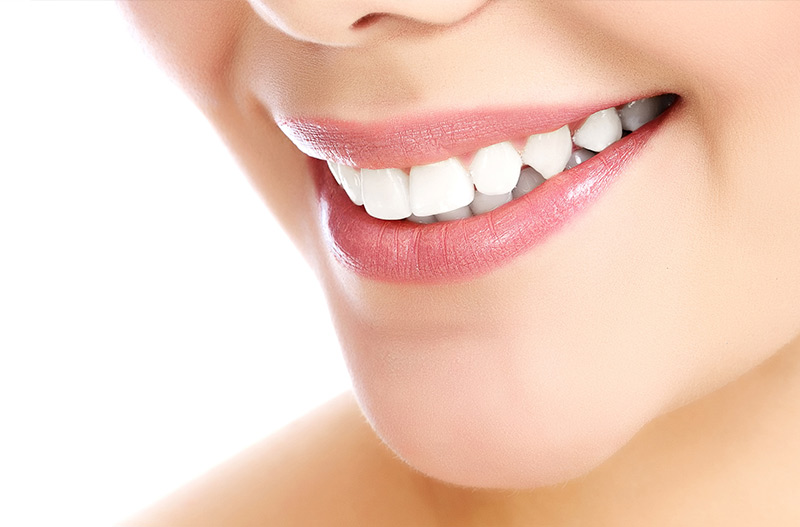
A dazzling and aligned smile can boost your confidence. A corrected smile can make you seem more friendly and open to others.
Even if your smile has been stained or damaged, you can enlist the aid of cosmetic dentistry. Keep reading to learn more about how you can repair your smile.
Cosmetic dentists can improve your smile. These dentists work to improve the health and appearance of your mouth, teeth, and gums.
The field of cosmetic dentistry offers many different treatments. Keep reading to learn more about various cosmetic dentistry procedures and how they can repair your broken smile.
Dental implants replace missing teeth at the root. These implants are put into the jaw bone to support a missing crown. This procedure begins by putting a titanium post into the tooth socket.
This post supplies the necessary support at the base of your teeth. Dental crowns are attached to these implants to help restructure your smile.
Dentists who need dental treatment to repair a tooth with severe decay or damage may need a crown or cap. These are made of acrylic, porcelain, or resin. Your cap is fused to your metal, so it won't easily fall out from chewing or biting.
Crowns can last anywhere from 10 to 30 years. The lifetime of this dental solution makes it a successful long-term solution.
A crown should not cause you an unreasonable amount of pain or discomfort. During this cosmetic dental procedure, your dentist will use a local numbing jelly to ensure that you don't feel any pain.
Having a clean and straight smile can help boost your confidence. Teeth are typically straightened with bracket sand wires to help slowly shift the teeth into the desired position. Your dentist may suggest the use of braces or aligners to help gradually move your teeth into place.
Teeth straightening procedures are some of the most common Coquitlam cosmetic dentistry procedures. Your dentist will run a series of scans to manufacture a plan to reposition your teeth.
Dental bridges are false teeth that are placed around missing teeth. Bridges are usually made of porcelain or plastic. They will cover any missing teeth and repair your smile.
Your bridge can be placed anywhere from one to four teeth. This may be a suggested solution from a cosmetic dentist.
It is usual for teeth to stain and change color over time. Unhealthy dental habits accelerate this process. For example, drinking coffee or wine and eating sugary foods can directly affect how quickly your teeth stain.
These unhealthy habits paired with poor oral hygiene habits can lead to discoloration. You can combat discoloration by practicing good oral habits and routinely undergoing a whitening treatment.
Whitening treatment can vary because everyone's teeth react differently. Your oral hygienist will be able to find a whitening solution that works for you.
Cosmetic dentistry solutions can elevate your confidence levels and smile. Brookmere Dental Group provides the expertise and experience necessary to bring a smile to anyone's face.
Connect with us to start your journey to repairing your smile.
Friday, October 1st, 2021

Have you ever spit your toothpaste into the sink and saw it streaked pink? Or, looked in the mirror after brushing and noticed one of your gums bleeding? Most of those reading this will likely answer yes.
That's because almost everyone will experience bleeding gums at least once in their life. So while the sudden sight of blood can be alarming, you should not be concerned if it only happens once.
However, bleeding gums are sometimes a symptom of more serious issues. If you are concerned about your inflamed gums, then continue reading to learn the causes of bleeding gums, treating gum disease, and how to prevent it.
These gum disorders are the top causes of bleeding gums.
The main difference between them is that your dentist can resolve your gingivitis, but if you are a periodontal patient, you are a periodontal patient for life. That's because, with gum disease, you can slow the progression of the condition, but you can't eliminate it.
Unfortunately, if left untreated, gingivitis will progress to periodontal disease.
Gum disease causes gum recession, tooth loss, and eventual loss of jaw bone. So, if you live in British Columbia and experience bleeding gums, finding a gum disease treatment dentist in Coquitlam should be your priority.
Sometimes the cause of bleeding gums is as simple as a brand new toothbrush. Stiff bristles paired with a heavy hand might be wreaking havoc on your soft, delicate gum tissue.
If you just started flossing, you may experience sensitive gums or bleeding the first go-around. Once you incorporate flossing into your hygiene routine, you should not experience any more bleeding. When bleeding becomes consistent, it's time to visit your dentist.
You should always keep your dentist in the loop of your overall health and medications because your dentist will tell you if the medications you're on might impact your oral health.
For example, blood thinners can cause bleeding gums because they make you more prone to bleeding.
So at your next appointment, bring a list of medications with you so that you and your dentist can optimize your dental care plan.
Several lifestyle factors can cause gum disease symptoms to arise.
Even a short lapse in oral hygiene can have consequences. Suppose you stay up too late on the weekends that you fall asleep without brushing or flossing. In that case, you can develop gum disease, even if you have stellar habits throughout the week.
Those that smoke are also risk of periodontal disease. This is because smoking inhibits healing making you more vulnerable to gum infections.
If you suffer from bleeding gums, you should visit your dentist for gum disease treatment as soon as possible to bring your mouth back to good health.
Studies have proven that stress is tied to higher rates of gum disease. Scientists suspect that stress related inflammation changes the way your mouth responds to bacteria.
When you're stressed, improving gum health is the last thing on your mind. However, bleeding gums are often a sign of a severe problem, so you should you contact your dentist right away.
There are several benign causes of bleeding gums, but you shouldn't assume that they apply to you. The only way to be sure of the cause of bleeding is to visit a professional dental office and have a thorough examination.
The first step to exceptional oral health is to find a trusted dental home. Brookmere Dental Group is a gum disease treatment dentist in Coquitlam with 20 years of experience.
Contact us today to begin your journey to a healthy smile.
Wednesday, September 1st, 2021

Veneers are a cosmetic dental procedure that improves the look of your teeth and also aids their function. With the help of a highly experienced and skilled dentist, it's possible to enhance the quality of your life and gain more self-confidence by having an improved appearance through veneers. Below are the things you need to know before getting veneers.
You can choose from four different types of veneers. Composite and removable veneers are the most affordable, but they only last up to five years. Lumineers last up to 10 years and are semi-permanent. Porcelain veneers are the most expensive, but they can last up to 15 years, so long as they are properly maintained. We recommend getting porcelain veneers as they as more durable and also resistant to stain. They may be expensive, but the benefits outweigh the costs. Make sure to regularly visit the dentist for a regular checkup to ensure that your veneers are still in good condition.
Veneers are a cosmetic dental procedure that can significantly enhance the appearance of your teeth. It can make your teeth look straight and uniform. If you have chipped, cracked, or gaps between your teeth, veneers can help you resolve it. They also fix misalignments and discolored teeth. Veneers don't have to be permanent; you can have temporary veneers for your teeth. Porcelain veneers may not necessarily remedy receding gums, but it effectively addresses issues associated with it. In addition, it reduces the patient's discomfort that comes from gum recession.
Not everyone can qualify for veneers. To know whether you're a good candidate, you'll need to visit a dentist for a checkup. To qualify for veneers, you may have to undergo some dental treatment first, including a root canal. Don't hesitate to contact Brookmere Dental Group if you're thinking about getting dental veneers. We're highly skilled and experienced with porcelain veneers Coquitlam. Contact us today.
Depending on the issues that need to be fixed, you may need to only have veneers for one or two teeth. A full-mouth restoration is also possible for patients who have many problems with their teeth, such as misalignments or gaps. Make sure that you visit a dentist to know your options.
Unlike dental implants, you can still keep your natural teeth when you get veneers. This is because veneers are thin, don't bulge, and are only bonded to the teeth. You can even remove some types of veneers. They are used merely to improve the teeth' appearance.
Do you need veneers to fix tooth issues? Our dentists are more than happy to help. We have been providing exceptional and compassionate dental services for years. Our team takes pride in our commitment to provide top-notch dental services in Coquitlam, New Westminster, Burnaby, and the Surrounding Communities. Call us today for an appointment.
Sunday, August 1st, 2021

Have you ever wondered why orthodontists place such a high premium on making sure that teeth come in straight and you keep your smile looking its best? It goes beyond simple aesthetics: it's because straight teeth are much easier to properly care for.
In recent years, Invisalign has become one of the best methods for straightening teeth, mainly because it gets results without the wires that come with traditional braces. But if you've never stopped to think about it, you might wonder why it's so critical to keep your teeth straight. These are just a few of the biggest benefits of doing exactly that!
Think about it: when you're flossing, do you find it easier to get into a straight area or one that's kind of jagged? There's no accident here: it's a lot more manageable for toothbrushes and dental floss to get in between your teeth and take care of bacteria before it can cause damage to your teeth. Not only are they harder to get in between, but when teeth come in jagged, bacteria can get trapped by the curve of your teeth, which makes it difficult for even your dentist to clean your mouth properly.
When you aren't able to clean your mouth correctly, plaque buildup is inevitable. If you can't get rid of bacteria before the plaque is created, you'll need to visit your dentist for a cleaning in rather short order.
When your teeth are spread out too far apart, you're more likely to develop problems with your gums. That's because spread-out teeth make it easier for bacteria to get to your gum line, which can lead to gingivitis and periodontitis. Gum disease is easy to prevent before it exists, but once it's had time to develop, it's very hard to get things heading back in a positive direction. If your teeth start to come in crooked, an Invisalign treatment can protect your gums for the long term.
As you get older, it becomes even more important for your teeth to fit together properly so that you're able to keep your jawline strong throughout your adult life. Grinding your teeth becomes much easier to accidentally do when your teeth don't fit together all that well, and wearing your teeth down can lead to headaches, broken bones, and issues with your jaw in old age. Studies have also shown that jaw problems can lead to sleep apnea, which brings its own set of issues.
If you're worried about any of these problems popping up in the future, Invisalign can be an excellent way to ensure that you straighten out your teeth properly so that they're easy to care for. When you've got straight teeth, not only will your smile look its best, but it'll feel its best because a straight smile is by far the easiest smile to keep healthy!
Thursday, July 1st, 2021
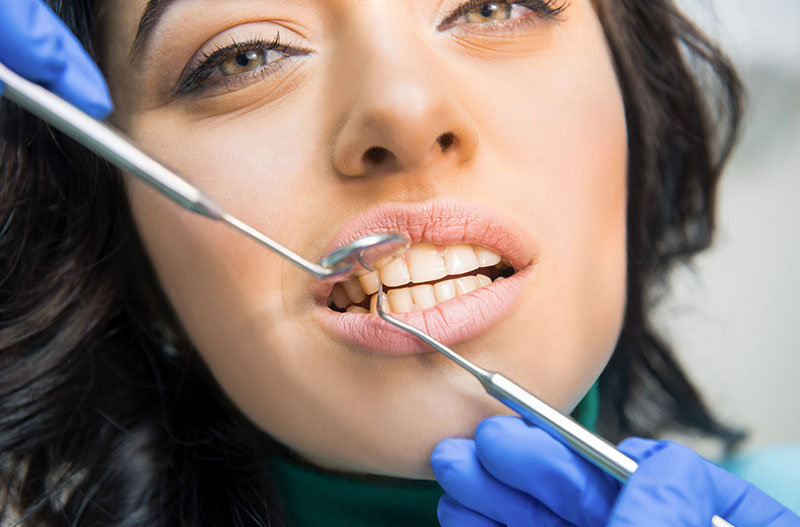
Is your smile "toothier" than normal? Have you noticed any differences in the gum line on your teeth? If so, you might need receding gums treatment.
Receding gums occur for many reasons, one of which is poor dental hygiene. The gum tissue pulls away from the tooth, thus creating gaps between the tooth and gum line for bacteria to thrive. This leads to tooth loss.
The first sign to look out for is tooth sensitivity. The recession of the gum line is slow, so if you don't visit the dentist on a regular basis, you won't know until it's too late. If you think your gums are receding, schedule an appointment with Brookmere Dental Group for gum disease treatment.
Need more guidance? Keep reading for information you need to know.
There are many reasons why your gum line is receding. Aside from poor oral hygiene, genetics, lifestyle, and age are factors. Some lifestyle factors are:
If you notice your gums are swollen, red, or bleeding with ease, go see a dentist. These are signs you might have gum disease.
The first course of receding gum line treatment is antibiotics. Antibiotics are the best to prescribe when the infection is a mild case. Other medications are antimicrobial mouthwash, enzyme suppressants, antiseptic chips, and topical antibiotic gel.
There are three types of surgeries to treat your receding gum line: regeneration, scaling and grafting. Surgical procedures are performed when the disease has worsened.
This procedure is to regenerate bone destroyed from the recession of the gum line. Your dentist folds the gum tissue back to expose and remove bacteria. Afterward, they place a membrane, a graft tissue, or a tissue-stimulating protein as the regenerative material.
This encourages the body to regenerate the bone and tissue. The gum tissue is placed back over the tooth to protect its roots and protect the regenerative material.
This procedure is like the regeneration technique. This is a deep cleaning treatment where the dentist cleans plaque and tartar away from the surface of the tooth as well as the root.
In scaling or root planning, the dentist folds back the inflamed gum tissue to remove the harmful bacteria from the gaps. After, the dentist secures the gum tissue over the tooth to reduce the size of the gaps caused by the gum line receding.
The purpose of this procedure is to revive the gum tissues or the bones of the tooth. The dentist places a synthetic particle or piece of bone or tissue to help the gums grow back. This procedure isn't long-term unless you exercise proper oral hygiene.
Based on the severity of your case, the dentist will decide the type of grafting necessary. A connective tissue graft is when a piece of skin is cut at the roof of your mouth and sewn to the gum tissue surrounding the exposed root.
A free gingival graft is when tissue is taken from the roof of your mouth instead of under the skin. If you have enough gum tissue around the affected tooth, your dentist may graft from there instead of your palate. This is referred to as a pedicle graft.
Gum disease treatment doesn't reverse the process of gum recession but it does slow down the process. After getting treatment for your gums, exercise good oral hygiene to prevent the disease from spreading further. What's the point of getting treatment if you don't change your habits?
Set up appointments with your dentist at least twice a year while keeping an eye on your teeth and gum line. Brush your teeth with a soft-bristled or electric toothbrush and floss every day. Follow the instructions your dentist tells you for the best results.
Receding gum lines are preventable when you get gum disease treatment and exercise good oral hygiene. Your gums are going to be pink when you schedule an appointment with us at Brookmere Dental Group.
Whether you're a new patient or established, we got you for your dental needs.
Tuesday, June 1st, 2021
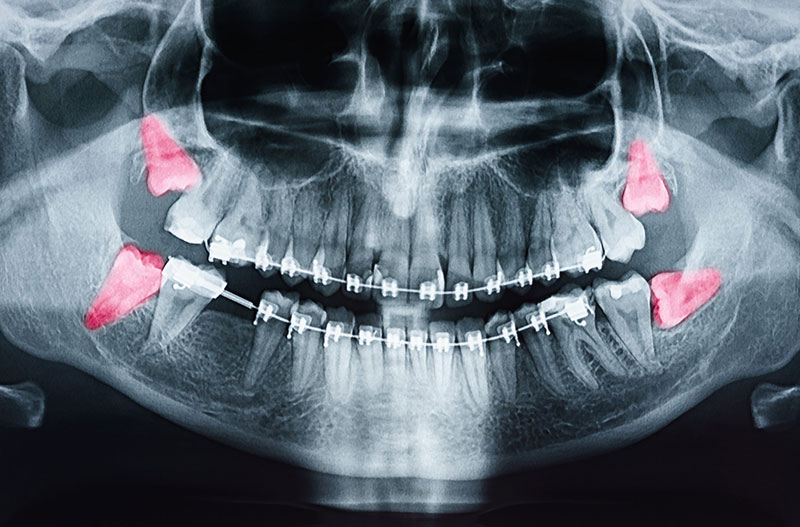
Every year, five million people undergo wisdom teeth removal. However, not all of these procedures are necessary.
Some people get wisdom teeth removed before they grow and others wait until their wisdom teeth have grown in. So, how do you know when to have a wisdom tooth removal?
The best answer is to visit a professional dentist who can recommend the surgery to those who need it. In the meantime, this guide can help.
The first sign you may need wisdom tooth removal is that the wisdom teeth are growing incorrectly. This is something that cannot be fixed with braces so removal is the only option to protect your other teeth.
You may not always be able to see your wisdom teeth growing incorrectly which is why it is important to search for a dentist who specializes in wisdom tooth removal in Coquitlam.
In some cases, you may be able to see the teeth or tooth growing at a weird angle. You will also likely feel pressure as the tooth crowds against your other teeth.
Before wisdom teeth come in, a dentist can tell you whether or not they need to be removed. This preventative dentistry technique can save you and your teeth trouble.
Various wisdom teeth symptoms indicate you need to have them removed. Although rare, you may experience sinus problems, headaches, and jaw pain.
When the wisdom teeth on your upper jaw need to get removed, they may push against your sinuses causing these symptoms.
More common symptoms of wisdom teeth pain occur when you are chewing your food. In some cases, the wisdom tooth emerges as food is lodged in the gums. You may not need wisdom tooth removal, just a good cleaning.
However, you should never make the call on your own. Get in touch with an experienced dentist who can tell you what the best option is.
A wisdom tooth infection is another sign you need a wisdom tooth removal. For one, an infection can happen if a cyst forms near the tooth.
A cyst is a small liquid-filled sac that can not only cause damage to the surrounding teeth but can also cause damage to the jawbone and nerves.
It's rare for a noncancerous tumor to develop because of a cyst. If this does happen, the removal won't be as simple. Bone and tissue are required for removal along with the tooth when a tumor forms.
Wisdom teeth grow in the back of the mouth making it difficult to reach them. Because of this, they are more prone to cavities.
Brushing your wisdom teeth, along with your other teeth, can help prevent bacterial growth that can cause tooth decay. If this happens to your wisdom teeth, a dentist will recommend removal instead of a filling.
After reading our informative guide, you should know whether or not you need wisdom tooth removal. If you are still unsure, it is best to visit your dentist right away before the wisdom teeth cause damage to the other teeth.
Next time you go in for a dental checkup, ask about the condition of your wisdom teeth. Book an appointment with us now to improve your oral health with our dental expertise.
Saturday, May 1st, 2021
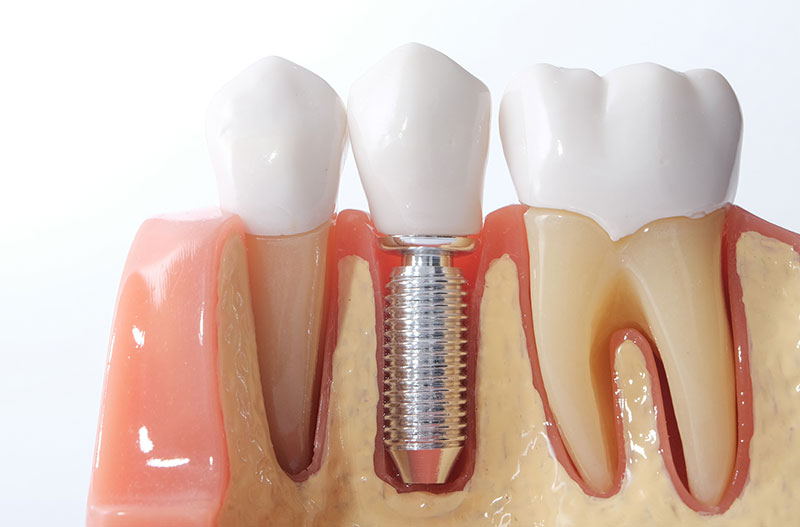
Have you been considering taking the plunge and getting dental implants in Coquitlam? A lot of people hesitate, wondering if it's a worthwhile procedure, so is it right for you?
There are plenty of reasons that you should consider dental implants. Regardless of why you need to replace your tooth (or multiple teeth), the cost of dental implants is worth it in the end.
Not convinced? Let's talk about it. Keep reading to learn all about the benefits of dental implants.
While sometimes removing a tooth is the best choice for your oral health, that doesn't mean that keeping that gap in your mouth is good for the rest of your teeth and gums.
There are several options for a missing tooth. Some people choose to align their teeth with braces after one is missing (and this is sometimes the better choice, when applicable). Others choose dentures.
What you shouldn't do, though, is leave the gap. You could experience bone loss. Even dentures can irritate your gums and cause gum recession (or further bone loss).
When you lose a tooth, it's harder to eat. You may resign yourself to soft foods or stop eating enough altogether.
To stay healthy, you need a diet rich in fibrous fruits and vegetables. You can't eat those things with a prominent missing tooth. When you get a tooth implant, eating will be simple again.
When you develop poor eating habits, you can damage your physical health. Protect yourself by replacing your missing tooth.
Are you self-conscious about your missing tooth?
While the first step should always be self-love, there's nothing wrong with getting a replacement for your tooth if it helps boost your self-image. You deserve to have a smile that you're happy to show off.
Tooth implants look so similar to real teeth that no one will know the difference when you flash your pearly whites. It's not vain or unnecessary to replace your teeth for aesthetic reasons.
As far as tooth replacement options go, dental implants aren't cheap. That said, they are a long-lasting option, so you make one payment and you're set for life.
With dentures, you need to get replacements every so often. While they're long-lasting, they won't last a lifetime. Tooth implants, however, are a "set it and forget it" option that you can treat like a natural tooth for the rest of your life.
Getting dental implants might be the best thing that you ever do for your smile. Whether you're concerned about aesthetics or health, the benefits of dental implants shouldn't be overlooked.
The cost is worthwhile when you get a smile that lasts a lifetime. Are you ready to get started?
If you're ready to get your dental implants in Coquitlam, we're here to help you. At Brookmere Dental, our experienced dentists are ready to improve your smile. Contact us to set up an appointment today.
